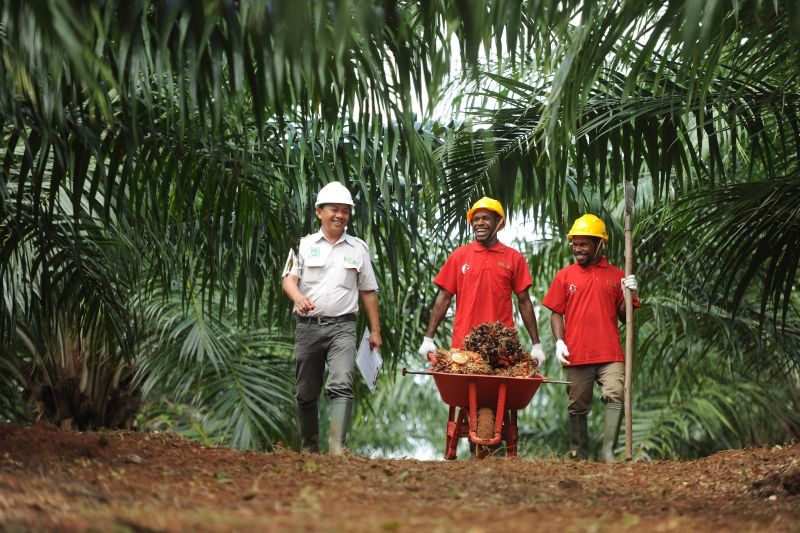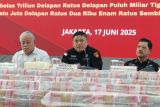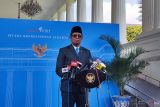Kupang (ANTARA) - The latest climate science from the IPCC - described by the UN as “code red for humanity” - shows it is still possible to limit global temperature rise to 1.5°C, but we are dangerously close to that threshold. As a palm oil plantation company from Indonesia, Tunas Sawa Erma Group (TSE Group) has given its commitment to contribute to global-scale efforts and reach net zero emissions by 2050.
This commitment is based on the awareness and belief that net zero emissions are achievable with teamwork and innovation from all players in the palm oil value chain.
To demonstrate such promise, TSE Group uses the Science Based Targets initiative (SBTi) standards to define its emissions goals.The Science Based Targets initiative (SBTi) is a global body enabling businesses to set ambitious emissions reductions targets in line with the latest climate science. It is focused on accelerating companies across the world to halve emissions before 2030 and achieve net-zero emissions before 2050.
With this standard, the company will set objectives and take necessary actions to limit global warming to below 1.5°C. TSE Group will also report the progress of these actions in a transparent and consistent manner through the SBTi platform and other relevant mechanisms.
“In the next two years, we will establish near-term and long-term targets, which encompass all our operational activities and supply chain and take into account carbon sequestration potential from the plantations and forests we manage,” said TSE Group Director, Luwy Leunufna, in his statement.
The palm oil firm will also adhere to local rules and regulations to reduce greenhouse gas emissions and contribute to Nationally Determined Contribution (NDC) targets. For everyone’s information, NDCs are commitments that each country makes to the Paris Agreement.
In its own NDC, Indonesia vows to cut down emissions by 29% below business-as-usual in 2030, or by 41% with international help.
“We support the government’s efforts to show this commitment [NDC], and we pledge to collaborate with other stakeholders to drive the transition to a low-carbon economy,” Leunufna announced.
Tunas Sawa Erma Group believes that by taking these steps, it will make a positive impact — not only on the environment and climate as a whole, but also on the local economy and social prosperity, which are reliant on the palm oil industry. The company hopes to inspire its counterparts to join the net zero emissions movement.
Net zero emissions is where the amount of carbon emitted into the atmosphere does not exceed the amount of carbon absorbed by Earth’s carbon sinks. To achieve this state, a transition is needed from the current energy system to a cleaner one, so that a balance is formed between human activities and nature.
The Indonesian government is serious in its undertaking to make net zero emissions possible. At the moment, it is developing a roadmap to help the country face climate change-induced challenges and risks going forward.











